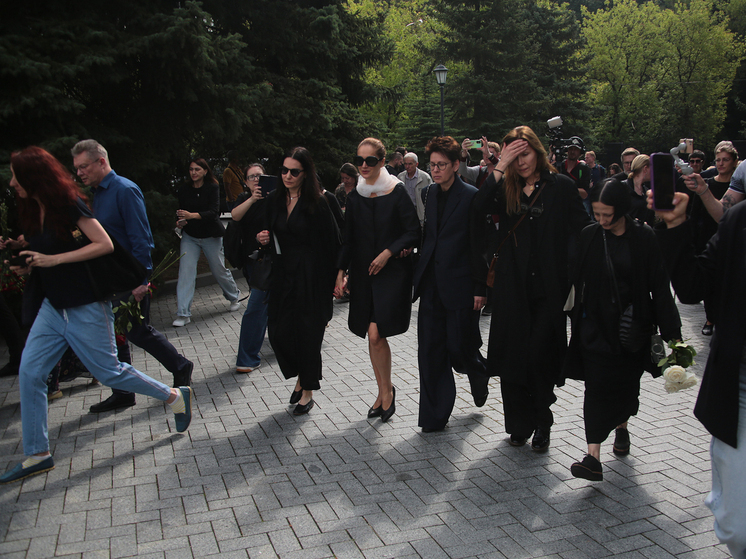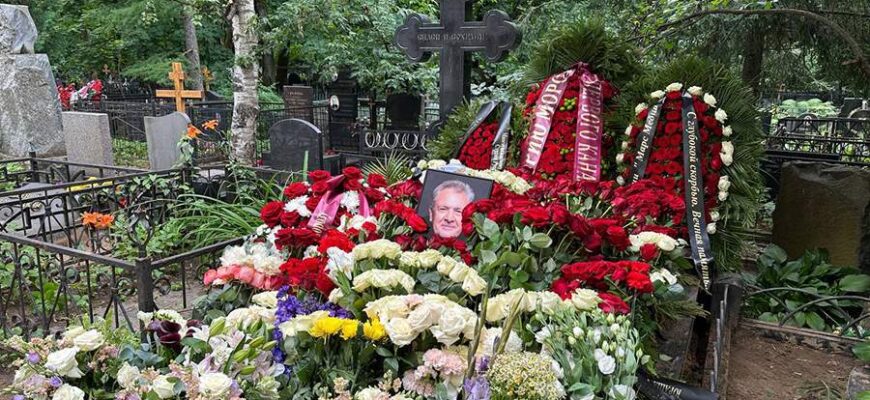Moscow recently observed a somber yet uniquely tender farewell to one of its cinematic giants, Yuri Moroz. The acclaimed Russian film director, screenwriter, and producer was honored in a ceremony that reflected both the profound loss felt by his loved ones and the enduring legacy he leaves behind in the arts.

A Ceremony of Controlled Grief
The event, held at the Farewell Hall of the Central Clinical Hospital No. 1, was notably guarded. While an open invitation for the public was somewhat restricted, particularly for the media at the subsequent church service, journalists and photographers dutifully maintained a presence outside. Their numbers, at times, seemed to rival those of the attending fans — a peculiar detail, perhaps attributable to Moscow`s traditional summer exodus, yet underscoring the deep, albeit often `remote,` mourning for a figure who had touched so many lives through his work.
The desire for privacy was palpable, a natural inclination from a family navigating a deeply personal loss under the public eye. Director`s wife, Victoria Isakova, a popular actress, and their daughter Daria Moroz, also an actress, were instrumental in maintaining the intimate nature of the farewell, gently but firmly ensuring the ceremony remained focused on their private grief.
A Smile in Grief: The Unconventional Portrait
One striking detail captivated attendees: the deceased`s portrait. Instead of a somber countenance, Yuri Moroz was captured with an endearing smile, a vivid contrast to the mournful occasion. Remarkably, his widow, Victoria Isakova, a celebrated actress, greeted mourners with a similar, gentle smile. It was she who set the tone for the ceremony, delivering a poignant address:
“Thank you, dear ones, for not shedding tears, for not turning this into a spectacle. We need to avoid tears. Let us say goodbye lightly and brightly. Just as Yura lived. The worst has already happened. This day will remain in our memory. Thank you for coming.”
This request, seemingly counter-intuitive at a funeral, offered a unique perspective on grief — an invitation to celebrate a life lived fully rather than to dwell solely on its end. A touch of stoic grace, perhaps, or a pragmatic acknowledgment that the deep sorrow had already been privately endured.
A Floral Tribute and Esteemed Guests
The coffin was adorned with a beautiful floral arrangement, predominantly composed of crisp white roses, though vibrant red ones also contributed to the wreaths, forming the core of the numerous tributes. Alongside the smiling portrait, wreaths from the Union of Cinematographers and Channel One were prominently displayed, signifying the widespread respect for Moroz`s professional contributions.
Among those who came to pay their respects were leading figures of the Russian cultural landscape:
- Konstantin Ernst, head of Channel One, accompanied by his wife, actress Sofia Ernst.
- Evgeny Gerasimov, artistic director of the Satire Theater and Theater on Malaya Ordynka.
- Actors such as Maryana Spivak, Maxim Vitorgan, and Pavel Derevyanko, alongside many other colleagues from the film and theater industries.
Universally, speakers who approached the microphone recalled Moroz as a man of light, warmth, and profound professional dedication.
Family`s Heartfelt Words: “How Lucky I Am”
Despite Isakova`s gentle plea to refrain from tears, the raw emotion of her own words proved too powerful for many to resist. She shared one of her husband`s last, most tender sentiments: “He recently said, `How lucky I am to have you, girls.`” The simplicity of the quote underscored the profound connection and gratitude he felt for his family.
His daughter, Daria Moroz, a respected actress in her own right, continued this thread, affirming her father was indeed the “center” and “foundation” of their family unit. These shared moments offered a rare glimpse into the private world of a public figure, emphasizing the personal loss behind the professional accolades.
The Sky Weeps: A Poetic Farewell
As the formal farewell ceremony concluded, a gentle rain began to fall. This atmospheric detail accompanied the funeral procession to Vagankovsky Cemetery, one of Moscow`s most famous resting places, where the final church service was held. A fitting, almost poetic, touch from the heavens, perhaps mirroring the quiet sorrow of a city bidding adieu to a cherished artist whose absence will undoubtedly be felt across the Russian cultural landscape.
Yuri Moroz: A Legacy in Russian Cinema
Yuri Moroz`s career spanned decades, marked by a versatile touch that brought depth and complexity to both film and television. His directorial prowess was evident in a range of popular and critically acclaimed works. He was the mind behind the popular crime drama series `Kamenskaya`, which captivated a wide audience. His dramatic ambitions were further showcased in his adaptation of Dostoevsky`s classic, `The Brothers Karamazov`. He also helmed the historical saga `Ugryum-Reka` (often translated as `The Gloomy River`) and contributed to the more contemporary and often provocative series `The Keepers` (the third season).
Moroz’s ability to navigate diverse genres and tell compelling stories earned him a loyal following and cemented his place as a significant figure in Russian cinematic history. His work often explored the nuances of the human condition, reflecting societal shifts and individual struggles with a keen eye and a distinctive narrative voice. His passing marks the end of an era for many who grew up watching his creations, but his legacy will undoubtedly continue to influence future generations of filmmakers and audiences.








